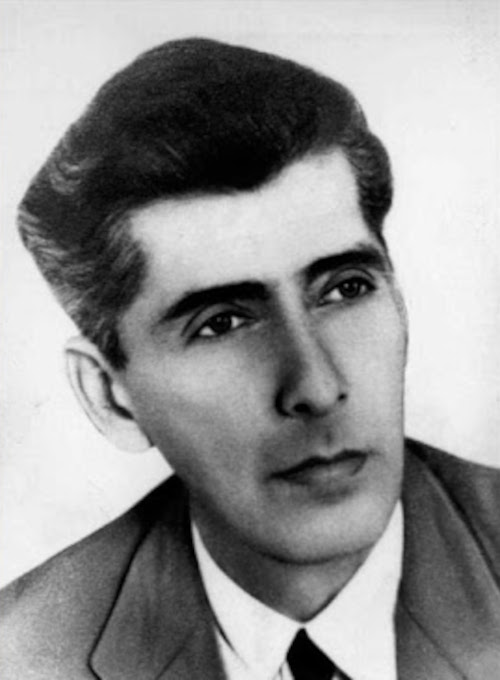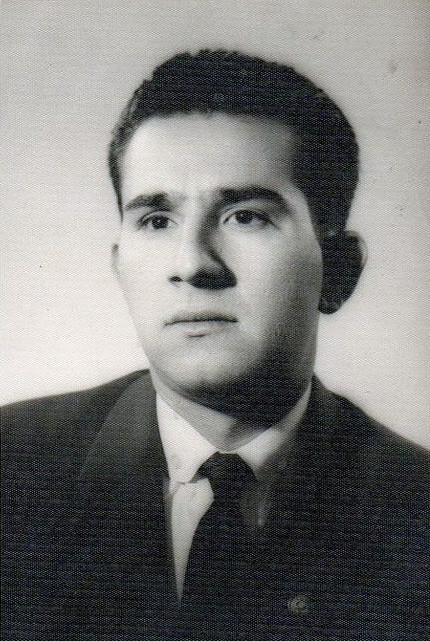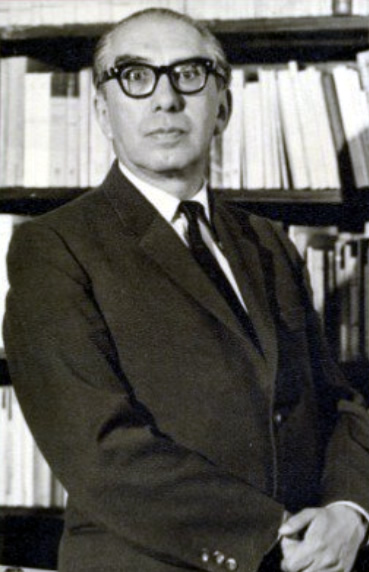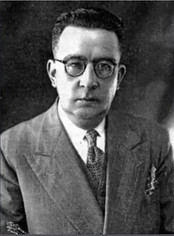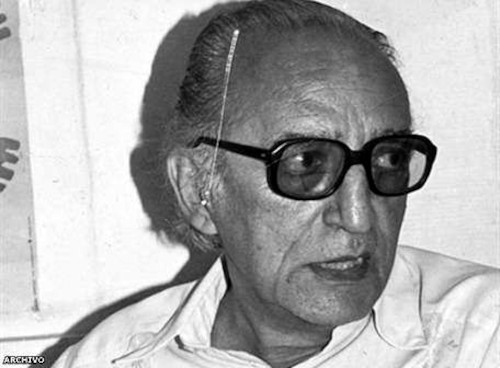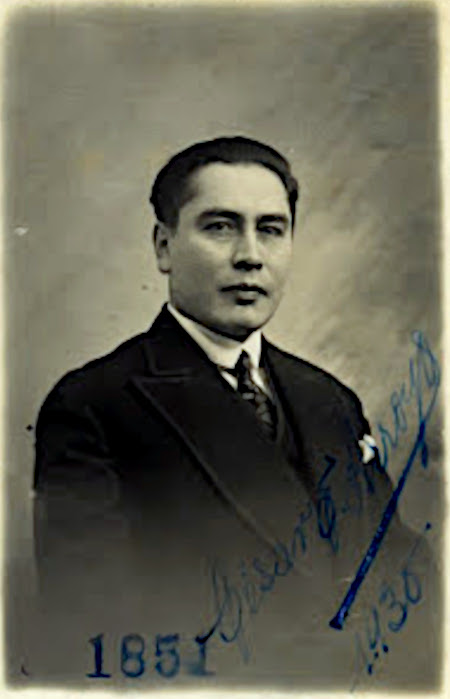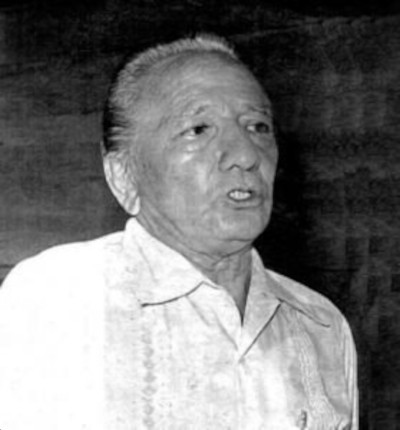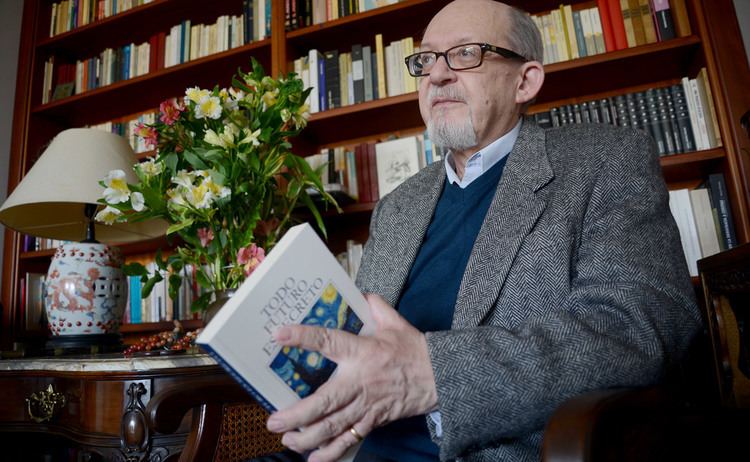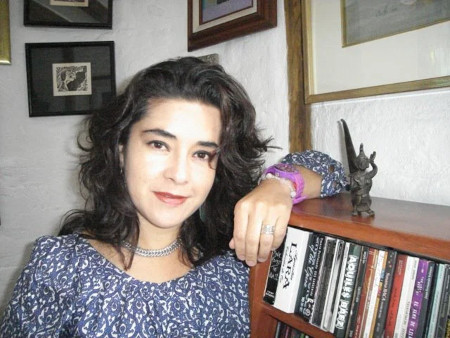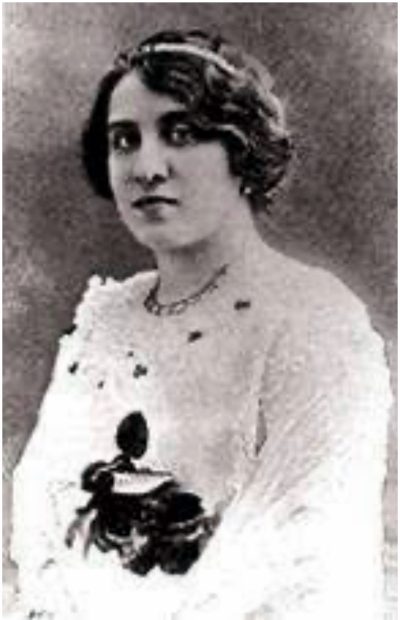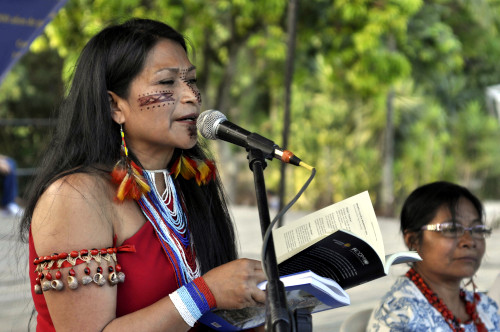Horacio Hidrovo Velásquez (Santa Ana, May 20, 1902 – Portoviejo, April 19, 1962) was an Ecuadorian poet, novelist, and short story writer. His most celebrated work, “Un Hombre y un Río” (1957), encapsulates his profound connection to the Ecuadorian coastal life, blending vivid narrative with social commentary. Velásquez played a significant role in the cultural sphere, serving as the President of the House of Ecuadorian Culture in Manabí in 1957, where he was instrumental in promoting the arts and literature.
Continue reading “Horacio Hidrovo Velásquez”Category: Poets
Luis Félix López
Luis Ramón Félix López (Calceta, August 25, 1932 – Guayaquil, December 17, 2008) was an Ecuadorian doctor and politician, as well as an award-winning novelist, short story writer and poet. He held many senior government posts during his lifetime and served two terms as president of the Guayas branch of the House of Ecuadorian Culture. His 1973 novel “Los designios,” was finalist for that year’s International Novel Award (Mexico), and his 1996 novel “La noche de rebaño,” won the Joaquín Gallegos Lara Prize. He also published several short story books and a collection of poetry.
Continue reading “Luis Félix López”Pablo Balarezo Moncayo
Pablo Balarezo Moncayo (Ambato, 10 December 1904 – 23 January 1999) was an Ecuadorian poet, journalist and essayist. He was active in the literary and cultural circles of his native city, Ambato, and in those of Quito, Cuenca and Guayaquil. In Guayaquil, in 1934, he directed the Sunday Literary Supplement of the newspaper El Universo. He was named Director of the House of Montalvo in 1966 and Director of the National Library in 1972.
Continue reading “Pablo Balarezo Moncayo”Víctor Manuel Albornoz
Víctor Manuel Albornoz Cabanilla (Lima, March 23, 1896 – Cuenca, October 26, 1975) was an Ecuadorian writer, poet, biographer, and historian.
Simón Corral
Simón Corral (Quito, January 5, 1946) is an Ecuadorian poet and dramatist. He studied sociology at the Central University of Ecuador, and was the president of the Federation of University Students of Ecuador. He was later a professor at the Central University of Ecuador.
Continue reading “Simón Corral”Hugo Salazar Tamariz
Hugo Salazar Tamariz (Cuenca, September 2, 1923 – Guayaquil, January 31, 1999) was a poet, novelist, playwright and actor. After traveling extensively throughout America, Europe, Asia and Africa, he moved to Guayaquil in 1940 where he lived most of his life and taught literature and drama at the university. He wrote several novels and books of short stories. In 1968 he published 3 plays in one volume entitled “Teatro,” which included “La falsa muerte de un ciclista,” “Toque de queda,” and “Por un plato de arroz.” In 2008, a complete collection of his poems was published posthumously under the eponymous title “Hugo Salazar Tamariz: poesía completa.“
Continue reading “Hugo Salazar Tamariz”César E. Arroyo
César E. Arroyo (Quito, 1887 – Cádiz, 1937) was an Ecuadorian poet, novelist, journalist, playwright and diplomat. He was Ecuador’s Consul in Vigo from 1912 to 1916, and Ecuador’s Consul in Madrid from 1917 to 1919. He later served as Consul in Santander and Cadiz. He co-founded the Madrid-based magazine Cervantes (1913-1921) with the Spanish poet Francisco Villaespesa.
Continue reading “César E. Arroyo”Ney Yépez Cortés
Ney Yépez Cortés (Quito, 1968) is an Ecuadorian novelist, poet, journalist, songwriter, screenwriter, lecturer, and teacher of Tai Chi, Reiki and Qi Gong. He is best known as a science fiction, adventure and mystery writer. He published his first poems in 1990 in Ixo Facto, a surrealist literary magazine. He has since written 5 novels and 3 books of short stories. In 2001 he published his first book of short stories entitled “Mundos abiertos,” which was critically acclaimed. In 2006 he published his first novel “Las sombras de la Casa Mitre,” and 2009 he published its sequel “El árbol de las brujas.” His latest novel “El secreto de la reliquia sagrada,” a work of adventure and mystery, was published in 2019.
Continue reading “Ney Yépez Cortés”Pedro Jorge Vera
Pedro Jorge Vera (Guayaquil, June 16, 1914 – Guayaquil, March 5, 1999) was an Ecuadorian journalist, novelist, short story writer, playwright, poet, university professor, and a politician from the Communist Party of Ecuador. He published and contributed to several controversial newspapers and magazines, such as “La Calle”, with the writer Alejandro Carrión, and “La Mañana”. He remained throughout his life a close friend of Cuban president Fidel Castro. Vera was the paternal uncle of Prima Ballerina Noralma Vera Arrata.
Continue reading “Pedro Jorge Vera”Juan Andrade Heymann
Juan Andrade Heymann (Quito, December 18, 1945) is an Ecuadorian writer, novelist, short story writer, poet, and playwright. His short story El lagarto en la mano (1965) and his novel Las tertulias de San Li Tun (1993) expressed social change.
Continue reading “Juan Andrade Heymann”Sonia Romo Verdesoto
Sonia Romo Verdesoto de Augustín is an Ecuadorian poet and diplomat. She was the only female member of the Tzantzismo movement in Ecuador during the 1960s. Verdesoto served as the Ecuadorian consul to Haiti.
Role in Tzantzismo
Sonia Romo Verdesoto was interviewed by Susana Freire García for the book Tzantzismo: tierno e insolente (2008; Tzantzismo: Tender and Insolent), where she discussed her role in the movement and its influence and effects on Ecuadorian culture
Works
Ternura del aire (1963).
Aleyda Quevedo Rojas
Aleyda Quevedo Rojas (Quito, 1972) is an Ecuadorian poet and journalist. She is regarded as an important voice in contemporary Latin American poetry. Among her best-known works are the poems “Algunas rosas verdes” (1996), for which she won that year’s Jorge Carrera Andrade Award, and “Soy mi cuerpo” (2006), in which she uses the human figure as an escape from the fears and anguish provoked by death. The latter book and another one, “Jardín de dagas” (2013), were translated into French. In 2017, the House of Ecuadorian Culture published the book “Cierta manera de la luz sobre el cuerpo,” a compilation of her poems up to that point.
Continue reading “Aleyda Quevedo Rojas“María Piedad Castillo de Levi
María Piedad Castillo de Levi (Guayaquil, July 6, 1888 – Quito, March 4, 1962) was an Ecuadorian writer, poet, journalist, and feminist. She fought for women’s suffrage and co-founded Nuevos Horizontes, a feminist magazine. Castillo studied at the Sorbonne in Paris and later worked for El Telégrafo Literario. A delegate to the Inter-American Commission of Women from 1940, she also joined the House of Ecuadorian Culture and traveled widely, contributing to international media. In 1962, her poetry collection Poemas de Ayer y de Hoy was published.
Continue reading “María Piedad Castillo de Levi”María Clara Sharupi Jua
María Clara Sharupi Jua (Morona Santiago, 1964) is an Ecuadorian writer, poet, and translator, who writes in Spanish and Shuar, an indigenous language of Ecuador’s Amazon basin. She writes poetry in Shuar, while translating it into Spanish in order to reach a wider audience. She co-wrote the book “Amanece en nuestras vidas” (2011), the first anthology of poetry from Ecuadorian indigeneous women writers, and wrote the short story collection “Tarimiat” (2019), which was written in Shuar, Spanish, and English. Sharupi Jua also works as a translator and radio and television presenter in Shuar and Spanish. She was a member of the translation team that worked on the official Shuar translation of Ecuador’s Constitution. She lives in Quito, where she has also worked for the Ministry of Foreign Affairs and Migration on indigenous issues.
Continue reading “María Clara Sharupi Jua”Karina Galvez
Karina Galvez (Guayaquil, July 7, 1964) is an award-winning poet with Ecuadorian and American citizenship. She has lived in Orange County, California since 1985. In 1995, she published her book “Karina Gálvez – Poesía y Cantares”[Karina Galvez – Poetry and Songs], which includes both English and Spanish versions of her poems with a prologue written by León Roldós Aguilera, Ecuador’s former vice president. She is also a songwriter and author of children’s poems and short stories. Her Spanish poems have been translated into English, French, Italian, Portuguese, Romanian, Bulgarian, Slovene, and Czech.
Continue reading “Karina Galvez”